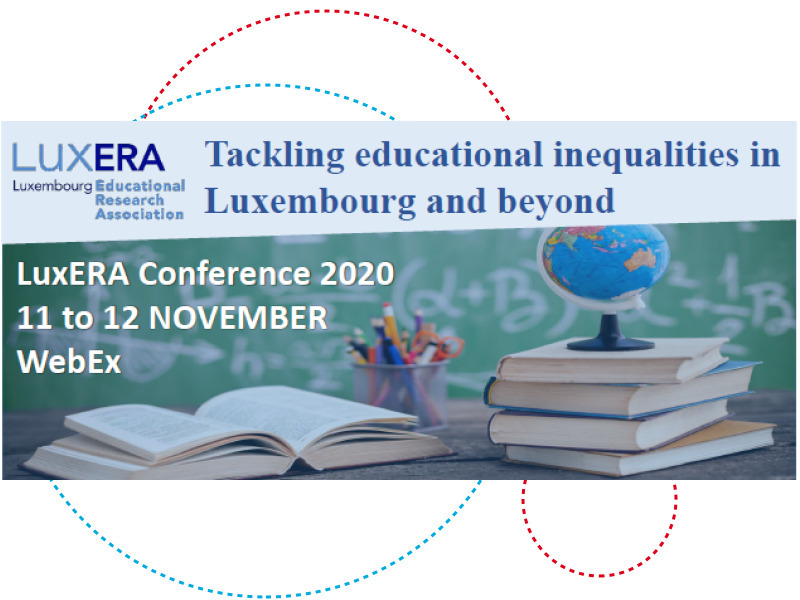Download Program
Wednesday, 11 November 202014h00 – 14h15 WELCOME & OPENING WORDS
14h15 – 15h00 KEYNOTE: Overcoming disadvantage: Closing the attainment gap by Beng Huat See, Durham University download Keynote speech
15h05 – 16h20 SESSION I: Educational Systems and Institutional Features
Tackling educational inequalities using school effectiveness measures by Jessica Levy et al.
Beyond school effects:The impact of differentiation & standardization of school systems on achievement inequality in Latin America by Francisco Ceron
The development of Need for Cognition in secondary school: Differences across tracks and subgroups of students by Joanne Colling et al.
16h30 – 17h30 LUXERA GENERAL ASSEMBLY
15h05 – 16h20 SESSION II: Current Issues in Educational Research
Students’ Personality Relates to Experienced Variability in State Academic Self-Concept by Jennifer Hausen et al.
NEPS survey data linked to administrative data of the IAB (NEPS- ADIAB) by Nadine Bachbauer & Clara Wolf
Bildungsforschung in Luxemburg im Spiegel wissenschaftlicher Publikationen by Jennifer Dusdal et al.
Thursday, 12 November 20209h00 – 10h40 SESSION III: Languages, Multilingualism and Inequalities
Towards more equal starting conditions with regard to the transition into compulsory schooling? by Kevin Simoes
Is there a math advantage for multilingual students? by Sophie Martini & Sonja Ugen
Lower reading comprehension in the language of math instruction accounts for weaker math performances in non-native children in a multilingual education system by Max Greisen et al.
Translanguaging course for preschool teachers to disrupt inequalities by Gabrijela Aleksić & Džoen Bebić-Crestany
9h00 – 10h40 SESSION IV: New (Digital) Challenges
Teaching in times of the pandemic – challenges and chances for digitally supported educational development by Isabell Baumann & Dominic Harion
The use of augmented reality, digital and physical modelling in schooling at home in early childhood in Echternach by Ben Haas et al.
GeoGebraTAO: Geometry learning using a dynamic adaptive ICT-enhanced environment to promote strong differentiation of children’s individual pathways by Carole Dording et al.
How do pupils experience Technology-Based Assessments? by Florence Kristin Lehnert et al.
09h00 – 10h40 SESSION V: Inequalities in Higher Education
Destination Luxembourg: Patterns and motives of higher education migration by Frederick de Moll et al.
Ethnic Effects at the Transition to Higher Education in Germany – A Differentiated Analysis of the Impact of School Performance and Social Origin by Swetlana Sudheimer et al.
Effects of social origin on educational and occupational reorientation after higher education dropout by Nancy Kracke & Sören Isleib
9h00 – 10h40 SESSION VI: Inclusion and Gender Issues
Inequalities in teacher reports on students’ inclusion at school by Carmen Zurbriggen et al.
Does training beget training over the life course? On the gender-specific influence of true state dependence & unobserved heterogeneity on non-formal work-related further training participation among workers in Germany by Sascha dos Santos & Martin Ehlert
Socialisation and gendered career choices: A cultural perspective by Irina Gewinner et al.
10h50 – 11h30 MODERATED POSTER SESSION
